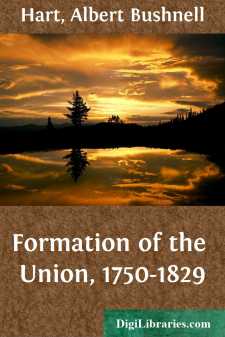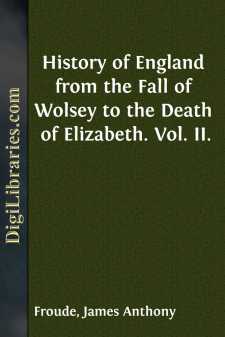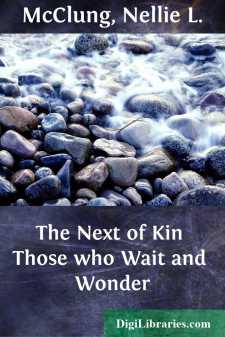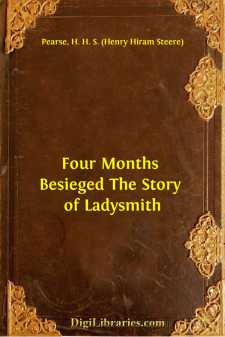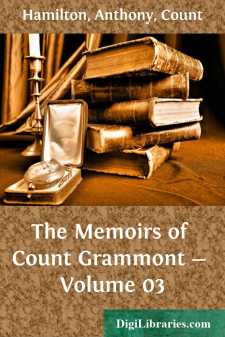History
- Africa 30
- Americas (North Central South West Indies) 50
- Ancient 68
- Asia 58
- Australia & New Zealand 8
- Canada 41
- Caribbean & West Indies 1
- Civilization 20
- Eastern Europe 12
- Europe 310
- Expeditions & Discoveries 60
- General 77
- Historical Geography 1
- Jewish 9
- Latin America 3
- Medieval 8
- Middle East 13
- Military 248
- Revolutionary 8
- Study & Teaching 5
- United States 353
- Western Europe 56
- World 13
History Books
Sort by:
INTRODUCTION Tacitus held the consulship under Nerva in the year 97. At this point he closed his public career. He had reached the goal of a politician's ambition and had become known as one of the best speakers of his time, but he seems to have realized that under the Principate politics was a dull farce, and that oratory was of little value in a time of peace and strong government. The rest of...
more...
1. REFERENCES BIBLIOGRAPHIES.—R. G. Thwaites, Colonies, §§ 39, 74, 90; notes to Joseph Story, Commentaries, §§ 1-197; notes to H. C. Lodge, Colonies, passim; notes to Justin Winsor, Narrative and Critical History, V. chs. ii.-vi., Channing and Hart, Guide, §§ 130-133. HISTORICAL MAPS.—R. G. Thwaites, Colonies, Maps Nos. 1 and 4 (EpochMaps, Nos. 1 and 4); G. P. Fisher Colonial Era, Maps Nos. 1...
more...
THE PROTESTANTS. Where changes are about to take place of great and enduring moment, a kind of prologue, on a small scale, sometimes anticipates the true opening of the drama; like the first drops which give notice of the coming storm, or as if the shadows of the reality were projected forwards into the future, and imitated in dumb show the movements of the real actors in the story.Prelude to the...
more...
CHAPTER I. INTRODUCTORY. Social organisation. Associations in the lower stages of culture. Consanguinity and Kinship. The Tribe. Kinship groups; totem kins; phratries. The passage from what is commonly termed savagery through barbarism to civilisation is marked by a change in the character of the associations which are almost everywhere a feature of human society. In the lower stages of culture, save...
more...
CHAPTER IWhen a soldier's watch, with its luminous face,Loses its light and grows dim and black,He holds it out in the sun a spaceAnd the radiance all comes back;And that is the reason I'm thinking to-dayOf the glad days now long past;I am leaving my heart where the sunbeams play:I am trying to drive my fears away:I am charging my soul with a spirit gay,And hoping that it will last! We were...
more...
by:
Philip Nichols
INTRODUCTORY NOTE Sir Francis Drake, the greatest of the naval adventurers of England of the time of Elizabeth, was born in Devonshire about 1540. He went to sea early, was sailing to the Spanish Main by 1565, and commanded a ship under Hawkins in an expedition that was overwhelmed by the Spaniards in 1567. In order to recompense himself for the loss suffered in this disaster, he equipped the...
more...
CHAPTER I INTRODUCTORY The declaration of war—Sir George White and the defence of Natal—The force at Glencoe—Battle of Talana Hill—General Yule's retirement—Battle of Elandslaagte—Useless victories—Enemy's continued advance. Before taking up the history of the siege proper it will be well here to pass briefly in review the events which led up to the isolation and investment of...
more...
by:
A. J. Evans
CHAPTER I CAPTURE For over three months No. 3 Squadron had been occupied daily in ranging the heavy guns which night after night crept into their allotted positions in front of Albert. On July 1st 1916 the Somme offensive opened with gas and smoke and a bombardment of unprecedented severity. To the pilots and observers in an artillery squadron the beginning of this battle brought a certain relief, for...
more...
by:
Anthony Hamilton
HIS ARRIVAL AT THE ENGLISH COURT —THE VARIOUS PERSONAGES OF THIS COURT Curiosity to see a man equally famous for his crimes and his elevation, had once before induced the Chevalier de Grammont to visit England. Reasons of state assume great privileges. Whatever appears advantageous is lawful, and every thing that is necessary is honourable in politics. While the King of England sought the protection...
more...
by:
Henry R. Plomer
EDITOR'S PREFACE hen Mr. Plomer consented at my request to write a short history of English printing which should stop neither at the end of the fifteenth century, nor at the end of the sixteenth century, nor at 1640, but should come down, as best it could, to our own day, we were not without apprehensions that the task might prove one of some difficulty. How difficult it would be we had certainly...
more...



